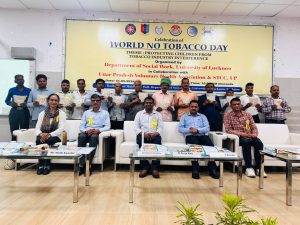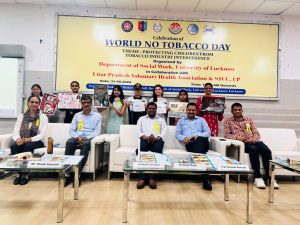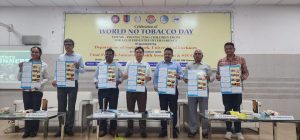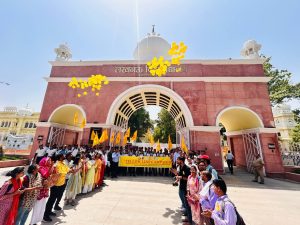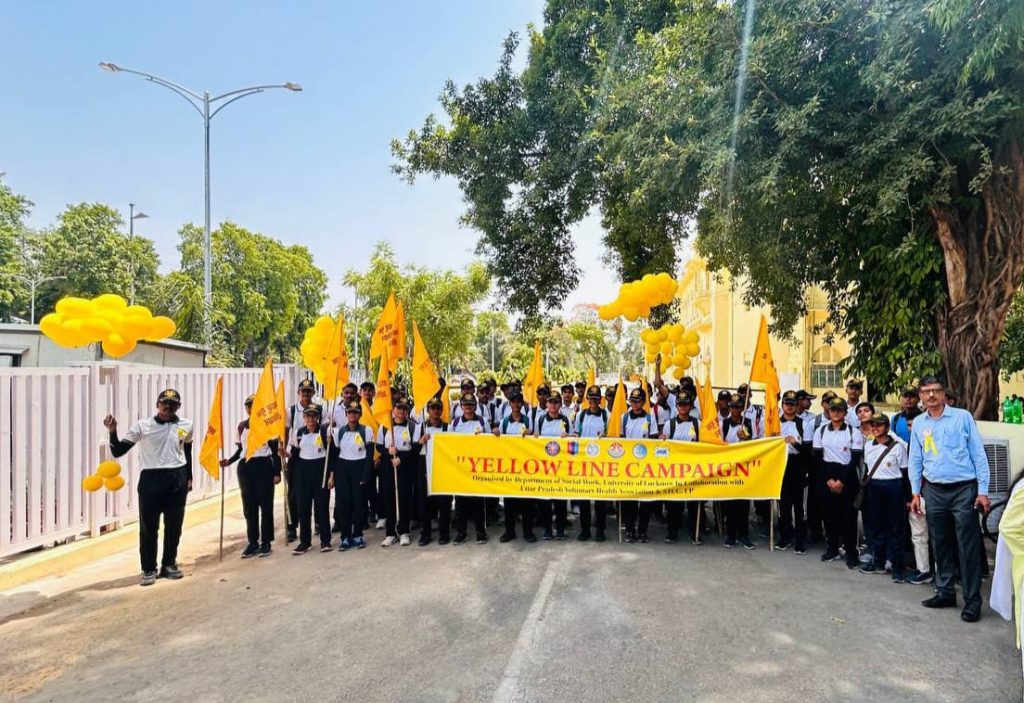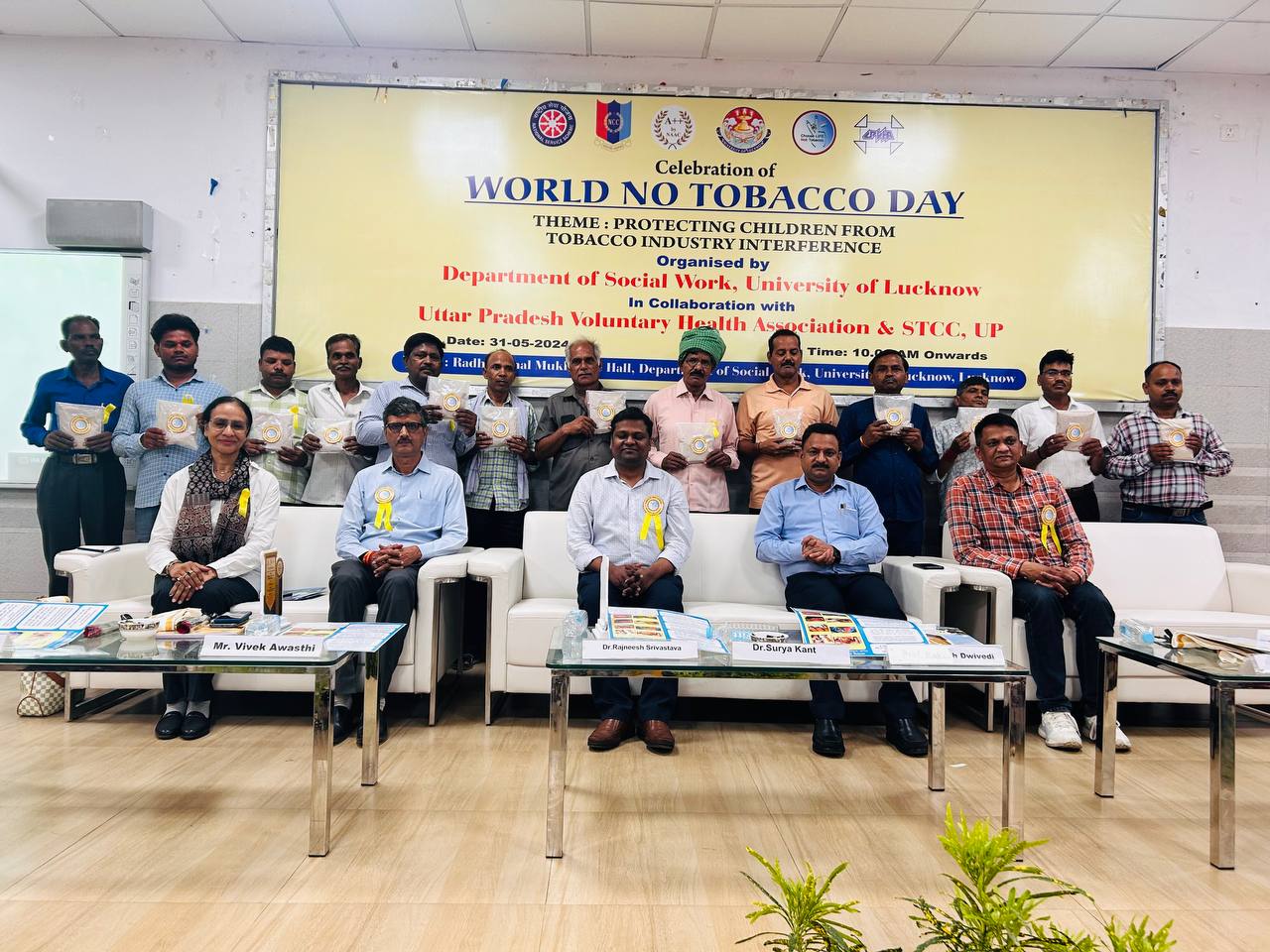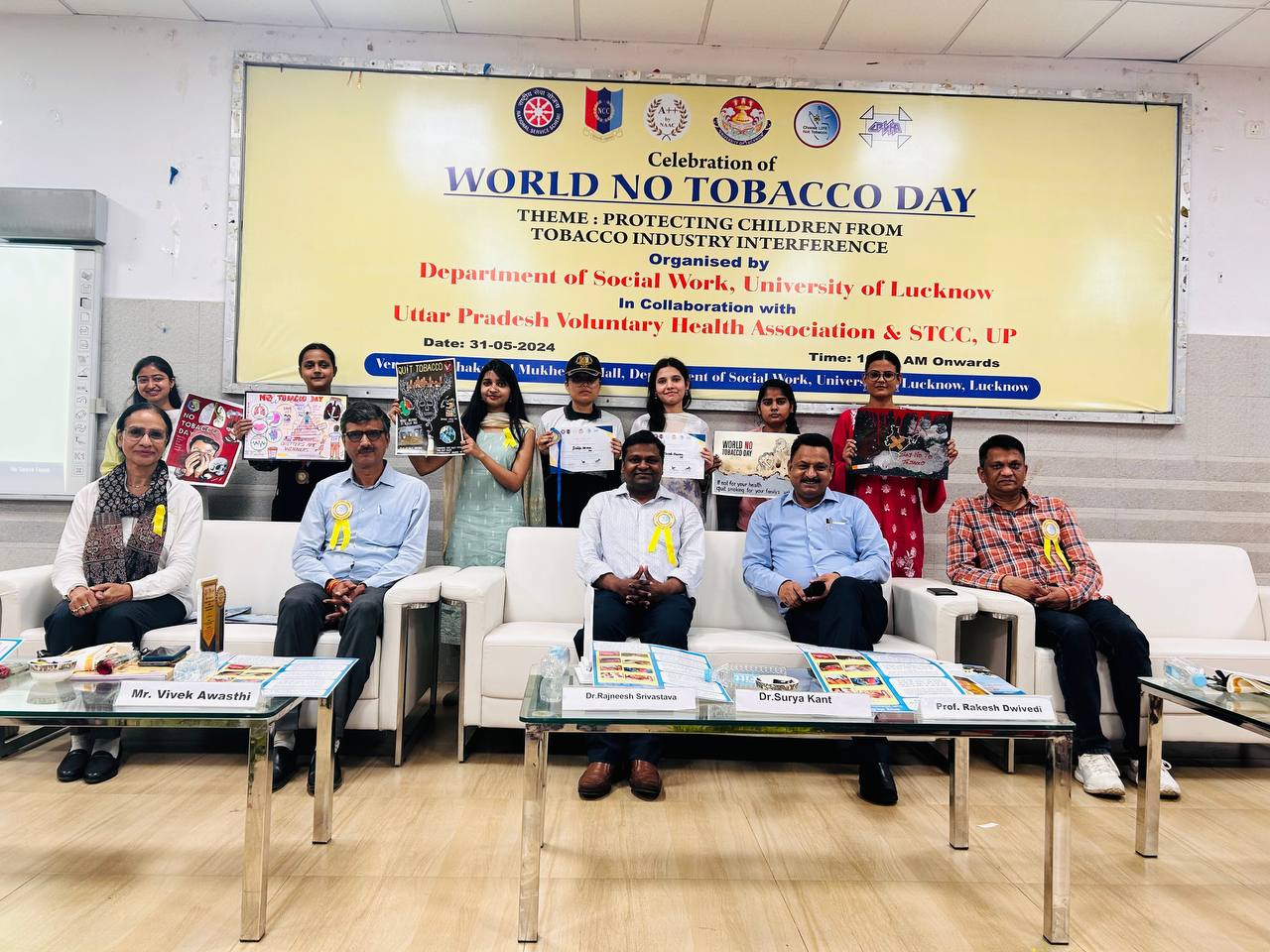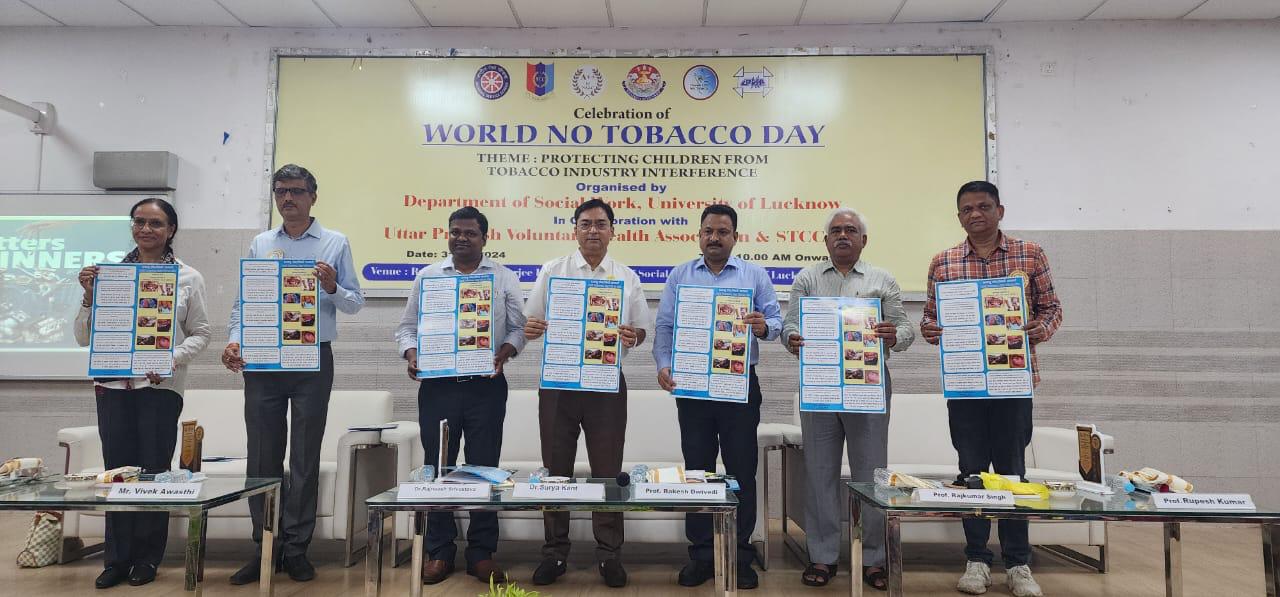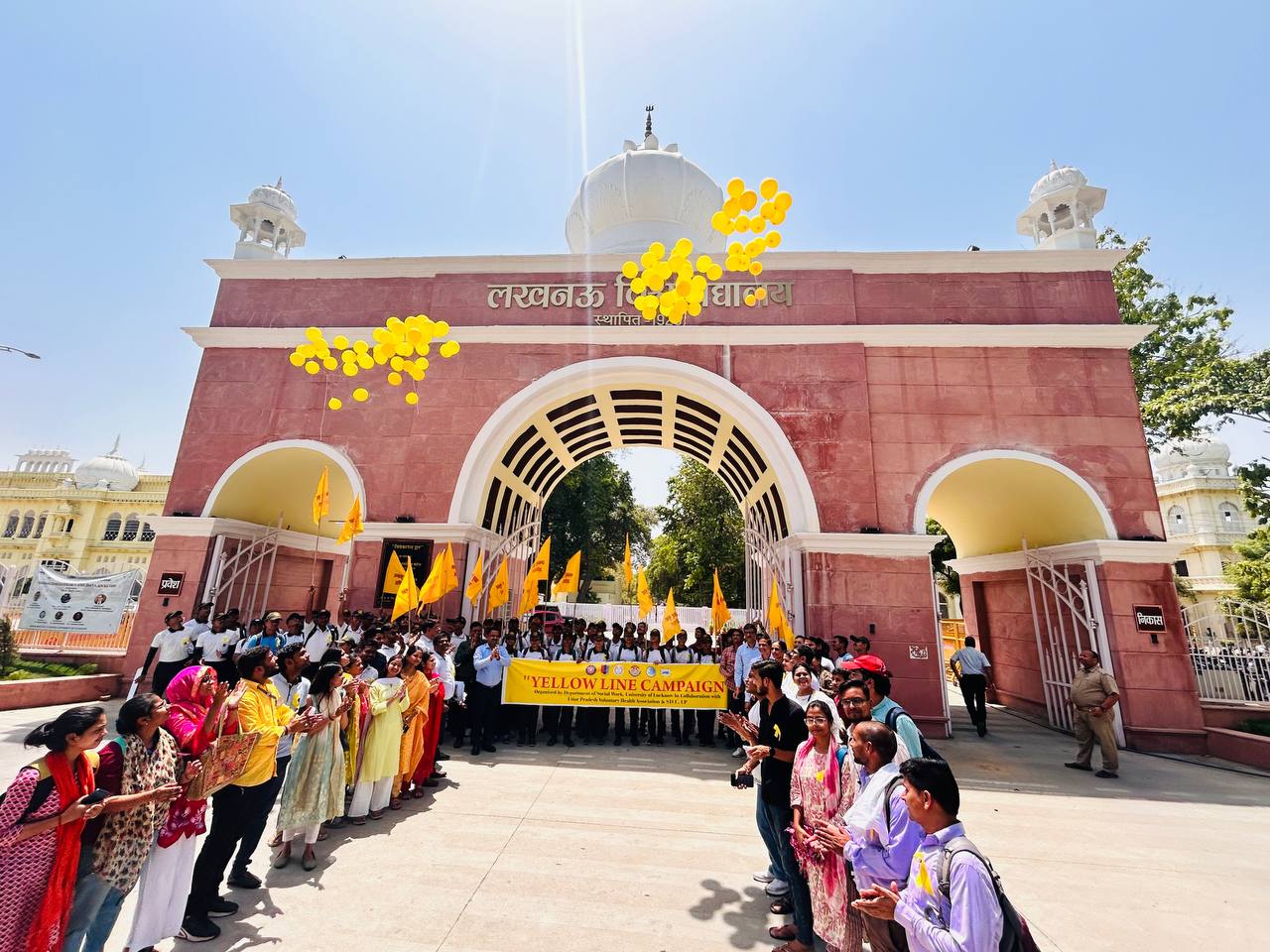“Protecting Children from Tobacco Industry Interference”
World No Tobacco Day (WNTD) is an annual event organized by the World Health Organization to raise awareness about the harmful effects of tobacco use and advocate for effective policies to reduce tobacco consumption. The theme for WNTD 2024, “Protecting Children from Tobacco Industry Interference,” underscores the necessity to shield young people from the aggressive marketing tactics of the tobacco industry. Tobacco use remains a major public health challenge, particularly in Uttar Pradesh, where a significant portion of the population, including youth, is at risk. The Uttar Pradesh Voluntary Health Association (UPVHA), in collaboration with the STCC, UP and University of Lucknow, organized a workshop aimed at educating and empowering students to combat tobacco use and advocate for a tobacco-free future.
The workshop began with an introduction session where the theme “Protecting Children from Tobacco Industry Interference” was emphasized. The lighting of the lamp ceremony set a solemn and respectful tone for the day’s proceedings. During the event, we honoured our distinguished guests by presenting them with mementos and bouquets as a warm welcome. A total of 200 students and faculty members and staff from the department attended the event.
Chief Guest Dr. Surya Kant, Head of Department, Respiratory Medicine, KGMU opened the workshop session by provided a comprehensive overview of the global and national impact of tobacco use. Globally, tobacco use results in a staggering 8 million deaths annually, with India bearing a significant portion of this burden. In India alone, 1.35 million people succumb each year to tobacco-related illnesses. The prevalence of tobacco use in the country is alarmingly high, with approximately 270 million users, including 22 million adolescents aged 13 to 15 years. The impact of tobacco extends beyond direct users; second-hand smoke affects 77 million people in public places and nearly 10 million at home. Smokeless tobacco, another major concern, is responsible for over 200,000 deaths in India annually. The health repercussions of tobacco are extensive, being linked to 25 types of diseases and 40 types of cancers, including oral, throat, lung, prostate, stomach, and brain tumours. This highlights the urgent need for robust tobacco control measures to mitigate the extensive health and social impacts of tobacco use.
Guest of Honor Dr. Rajneesh Srivastava, Pulmonologist, Max Super speciality Hospital, Lucknow highlighted that people who consume tobacco should be provided social and psychological treatment. Children and youth will have to be motivated to stay away from tobacco consumption. He said that heart rate will improve just 20 minutes after quitting smoking. The cough and shortness of breath will subside within one to nine months. Within five to 15 years your risk of stroke drops to that of a non-smoker. The mortality rate from lung cancer within 10 years is about half that of a smoker. Within 15 years, the risk of heart disease is the same as that of a non-smoker.
Distribution of Millets: Millets were distributed as a gesture to support ground workers and staff members while promoting nutritional awareness with the message “We need Food, not Tobacco.” This initiative also aimed to raise awareness about the harmful effects of other tobacco products and to promote the government’s health initiatives.
Prize Distribution: An online poster-making competition was conducted with the theme “Protecting Children from Tobacco Industry Interference.” The winners were recognized for their creative efforts and commitment to advocating for tobacco control, serving as an inspiration for more students to engage in future initiatives. In the competition, Jainab secured the first prize, Kritika was awarded the second prize, and Mariyam earned the third prize in the competition.
Pledge for No Tobacco Use: Participants took a collective pledge to abstain from tobacco, reinforcing their commitment to a tobacco-free lifestyle.
Signature Campaign: The advocacy initiative saw enthusiastic participation, with many students and faculty members adding their signatures in support of stronger tobacco control measures.
Poster Release: A poster was unveiled with the message “Tobacco Users Have Extra Burden of Medical Expenses,” highlighting the financial strain that tobacco use places on individuals and families. This visual aid served to drive home the point that tobacco consumption is not only a health hazard but also an economic burden.
Balloon Release Ceremony: The event concluded with a symbolic release of balloons at Gate No. 3, representing the community’s commitment to letting go of harmful tobacco habits. The World No Tobacco Day workshop on “Protecting Children from Tobacco Industry Interference” was a resounding success. It effectively raised awareness, empowered students, and mobilized the community to take concrete steps towards a tobacco-free future. U P Voluntary Health Association in collaboration with STCC, UP and University of Lucknow, demonstrated a strong commitment to public health and set a positive example for other institutions to follow.
